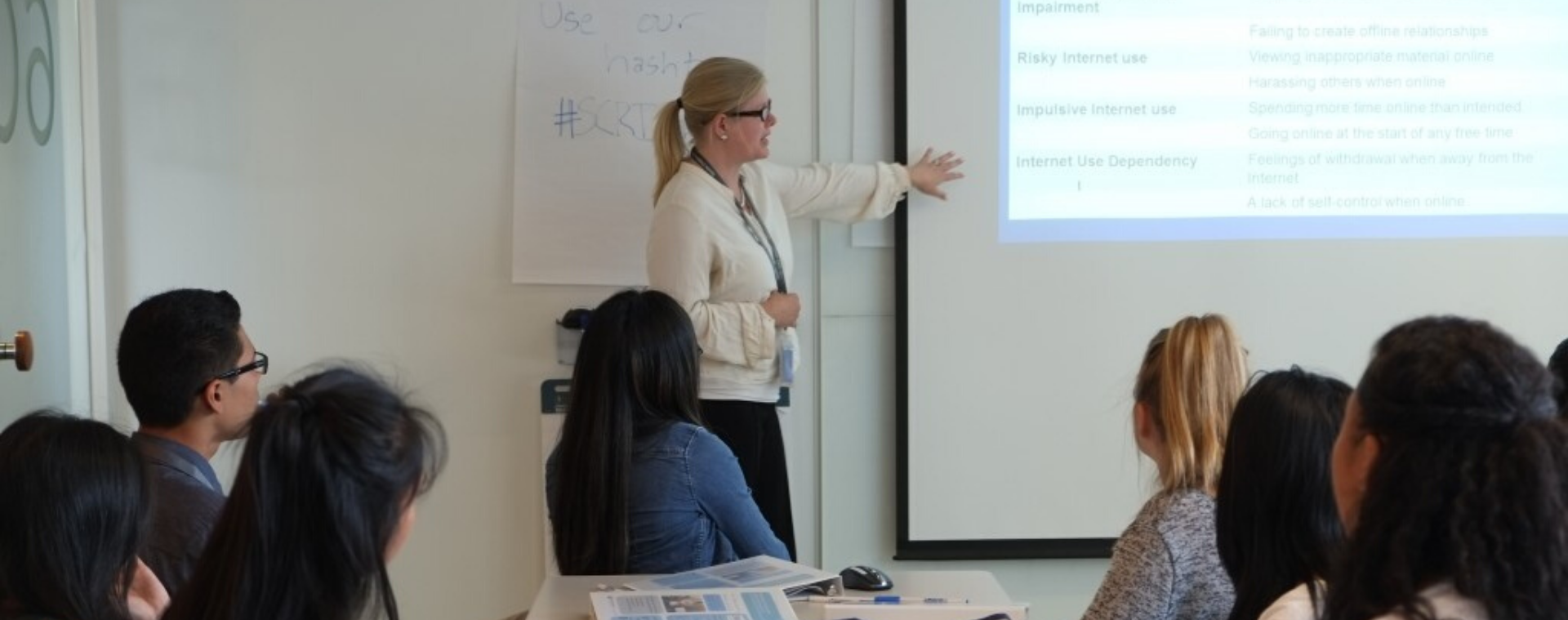Our team is passionate about implementing practical solutions to common adolescent issues that arise in our research everyday. We feel that one of the best ways to do this is to answer your questions about adolescent health directly – chances are that there are many other parents, teachers, and community members that are having similar experiences with the adolescents in their lives. By allowing us to post your question on our forum, you will not only receive expert advice on your topic, but you will also be able to see what other parents have to say about similar situations that they have experienced. If you have a question about our research, ask SMAHRT here!
Our team loves to hear the questions and comments of parents, community members and fellow researchers. To make this the most useful process for everyone, we do have a couple of guidelines to keep in mind when submitting a question or comment to our team. First, know that unless specified otherwise, anything submitted to our team may be posted. We feel that this is the best way to help others with similar questions or comments receive the information they are seeking as well. Second, we ask that your questions and comments be relevant to our research focus. We are more than happy to answer or discuss any questions or comments related to our studies, Sex, Drugs ‘n Facebook, or adolescent health and the media in general. If you have a question regarding a medical issue, we suggest speaking with your local practitioner.
Q: My husband and I recently decided to let our 13 year old get a Facebook. She doesn’t want to us to “friend” her, but I would feel a lot better about her being on the site if I could check in and see what she was doing every now and then. Thoughts or suggestions on this?
ANSWER ↓
Unfortunately, there is no clear “right” answer to this situation – different strategies work best for different families. It tends to work best to talk it out with your teen to come to a solution. Find out why they do not want you to be their friend on Facebook and try to establish some guidelines around these concerns. For example, if they are worried about embarrassing comments or posts from family members, one guideline could be that you will promise to be a “silent observer” and not comment on their Facebook activity on the site. It may benefit both parties to reflect on their communication, discuss what is appropriate for them, and decide on what works best.
One thing worth noting, however, is that Facebook now includes several security options that can be customized to different sections of the profile or for different Facebook friends. For example, if you are “friends” with your child on Facebook, she can provide you access to some online albums of photographs but block other online albums from your view. As a viewer of another person’s profile, you typically can only view content that that profile owner has allowed you to access, and you cannot tell whether or how much content has been hidden.
Whether or not you are friends with your teen on Facebook, it is worth viewing their displayed content. This can happen on a scheduled basis, as some families schedule weekly “check ins” as a young teen starts out using Facebook, and decreases the frequency over time and as more trust and experience is developed. This can also happen impromptu, if you walk by your teen who is actively using Facebook, take a moment to ask if you can look at the profile with them. These quick moments can be a great way to promote ongoing monitoring and feedback in a natural way.
Hope this helps! Good luck!
Q: I am a researcher at the University of Wisconsin and recently came across your “Sexpectations” study and found the implications to be very intriguing. Have you done any follow up work on the female motivation for posting sexual displays?
ANSWER ↓
This study was one of our favorites. The perspectives shared in these focus groups were incredibly insightful to the way technology has come to affect so many aspects of our lives – even the dating world. But no, we have not yet done a follow up study on the female motivation for posting sexual displays. However, we are definitely keeping this topic on our list for future studies!
Though we have yet to look into the motivation for sexual displays, we have done a bit of follow up work on this type of Facebook activity with our study “A Pilot Evaluation of Older Adolescents’ Sexual Reference Displays on Facebook.” A bit to our surprise, we found that there were no differences between Displayers and Non-Displayers regarding lifetime prevalence of sexual behavior, number of sexual partners, or frequency of condom use. In addition, we found that a display of sexual references on college freshmen’s Facebook profiles was positively associated with reporting intention to initiate sexual intercourse. This suggests that Facebook profiles may present an innovative cultural venue to identify adolescents who are considering sexual activity and may benefit from targeted educational messages. This is an area of media use that we still have much to discover – if you or anyone on your team are working on any related projects, we would love to hear about them!
Thanks for your post!
[ninja_forms_display_form id=3]


